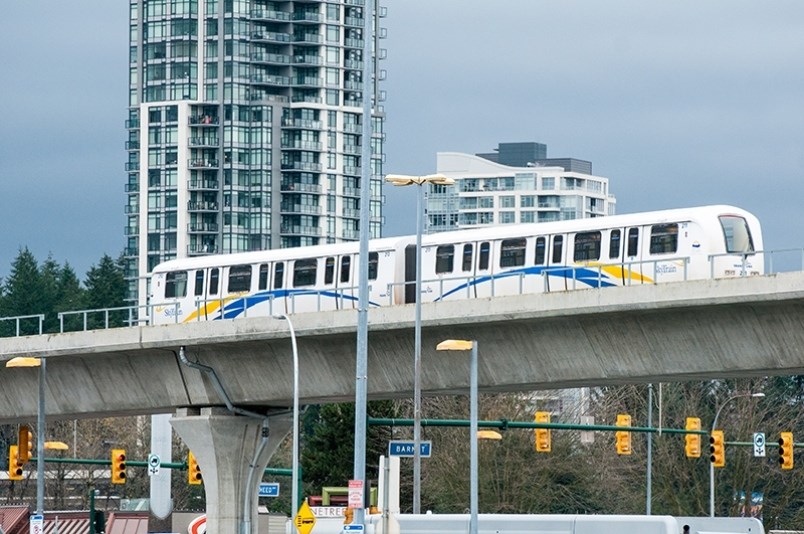Transportation issues are the top concern for Coquitlam residents, according to the results of a survey released this week.
Of the 34% of respondents to the Ipsos survey conducted for the city who listed transportation in their open-ended responses, the two most frequently mentioned concerns were public transit (35%) and traffic congestion (29%).
"Transportation has consistently been the leading top-of-mind community issue since 2003 and this year's results are similar to 2018," the Ipsos report said. "Transportation mentions in Coquitlam are also on par with the municipal norm."
The document noted that transportation concerns were consistent across all demographics and age groups. But younger people were more likely to cite the quality or level of public transit as their main concern while those over 35 said traffic congestion was their biggest issue.
Men were more likely than women to mention traffic congestion as a concern (34% to 24%), along with people with children living at home compared to people without children at home (38% compared to 24%).
Transportation concerns were not the only issue that were top-of-mind for Coquitlam residents.
Of the 500 randomly selected Coquitlam residents 18 years and older who participated in the survey, 25% said social issues, such as housing affordability, were top concerns for the city. Another 15% said development was an important issues, although respondents had conflicting views on whether it was good or bad.
Of the respondents who said their quality of life improved in Coquitlam, 18% said it was because of growth and development; meanwhile, 27% cited growth and development as the reason their quality of life worsened.



